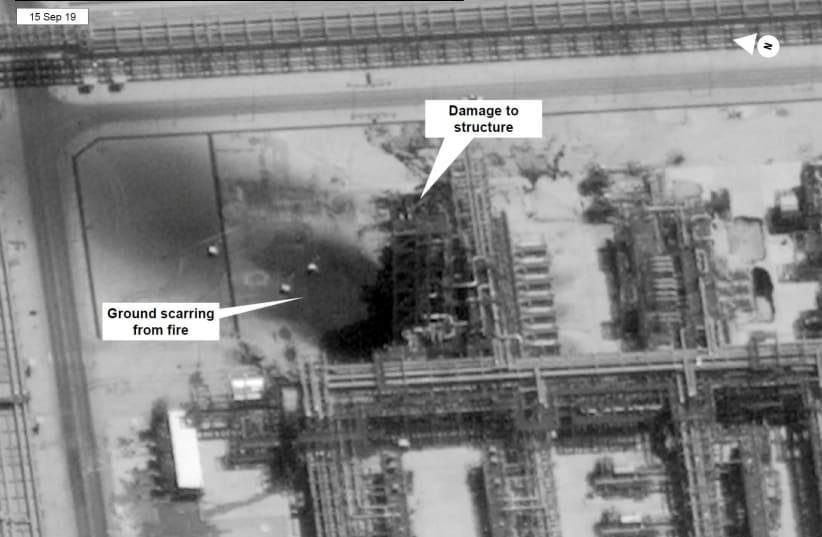Saudi-led military coalition battling Yemen's Houthi movement also said on Monday that the attack on Saudi Arabian oil plants was carried out with Iranian weapons and was not launched from Yemen according to preliminary findings.Coalition spokesman Colonel Turki al-Malki said that an investigation into Saturday's strikes, which had been claimed by the Iran-aligned Houthi group, was still going on to determine the launch location."The preliminary results show that the weapons are Iranian and we are currently working to determine the location ... The terrorist attack did not originate from Yemen as the Houthi militia claimed," Malki told a press conference in Riyadh.He said authorities would reveal the location from where drones were launched at a future press briefing.US Ambassador to the United Nations Kelly Craft told the Security Council on Monday that emerging information on attacks on Saudi oil facilities "indicates that responsibility lies with Iran" and that there is no evidence the attack came from Yemen.Britain's UN Ambassador Karen Pierce told the 15-council: "We're still assessing what happened and who's responsible for the attacks. Once this has been established we will discuss with our partners how to proceed in a responsible manner.""United States wholeheartedly condemns Iran's attack on Saudi Arabia," US Energy Secretary Rick Perry said on Monday.Cruise missile and drone attack that hit two oil installations in Saudi Arabia came from Iranian soil: U.S. officials
— Lucas Tomlinson (@LucasFoxNews) September 16, 2019
United Nations Yemen envoy Martin Griffiths told the UN Security Council on Monday that it was "not entirely clear" who was behind Saturday's attack on Saudi oil facilities but he said it had increased the chances of a regional conflict."It's not entirely clear who was behind the attack, but the fact that Ansar Allah has claimed responsibility is bad enough," Griffiths told the council, using the official name of Yemen's Houthi group. "This extremely serious incident makes the chances of a regional conflict that much higher."Iran has dismissed as "unacceptable" US accusations that Tehran was responsible for the assault on Saudi oil facilities that cut almost half of the kingdom's production, or 5% of global oil supply.Malki said the Gulf Arab state, the world's top oil exporter, was capable of protecting vital energy and economic sites. "This cowardly act largely targets the global economy and not Saudi Arabia."The Western-backed, Sunni Muslim alliance intervened in Yemen in March 2015 to try to restore the internationally recognized government ousted from power in the capital Sanaa in late 2014 by the Houthis.The movement has stepped up drone and missile attacks on Saudi cities this year. The conflict is largely seen in the region as a proxy war between Saudi Arabia and Iran.The United States wholeheartedly condemns Iran’s attack on Saudi Arabia. pic.twitter.com/i7iidpDz1l
— Rick Perry (@SecretaryPerry) September 16, 2019
